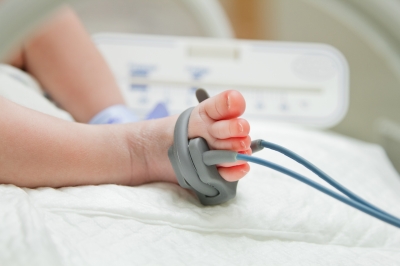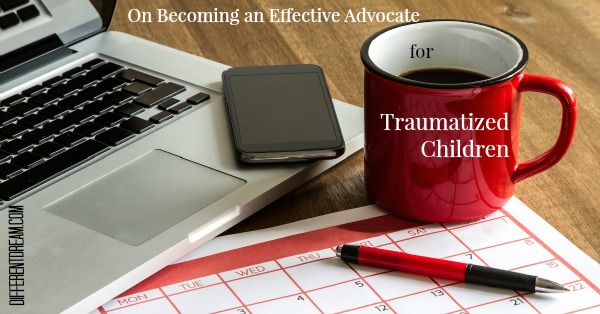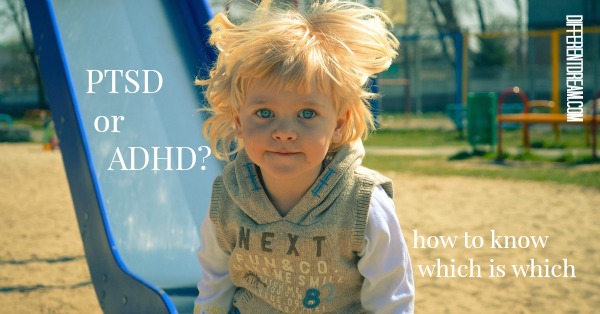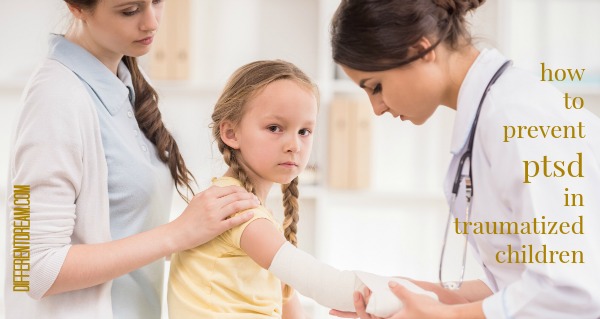He Won’t Remember: Children and PTSD

Some things parents never forget. Like the first time a mother holds her newborn child. Or the first time a baby belly laughs at a father’s antics.
But when I think of our son’s early days, one unpleasant memory comes to mind. Our baby’s wince of pain when the nurse took him—bristling with drainage tubes, feeding tubes, IVs, and monitor wires—and placed him in his daddy’s arms.
Newborns Don’t Feel Pain
“Should we really be moving him?” my husband asked. “Wouldn’t it be better for him to lie still in his bed?”
“No,” the nurse assured us. “He needs the security of your arms more than anything right now. Besides, newborns don’t feel pain like they do when they get older. That’s why your baby isn’t on pain meds.”
I looked at the two inch vertical incision on our baby’ stomach and at the horizontal one that began under his armpit and ended at his spine. I looked at my son’s drawn mouth, the frown lines on his forehead, and the strain in his eyes. “Are you sure?” I questioned the nurse…and later the surgeon, the pediatrician, and the GI doctor. “Are you sure he’s not in pain? Are you sure this won’t affect him emotionally?”
He Won’t Remember
One after another, well-meaning health care professionals gave the same answer.
“He won’t remember.”
“He won’t remember.”
“He won’t remember.”
Our baby was 26-years-old before a mental health care professional confirmed our suspicions.
Our newborn son did feel pain during and after surgery.
He did remember.
He remembered a lot.
But because the experiences were pre-verbal, he had no words to describe how he felt.
Those memories were the source of his emotional and behavioral issues during adolescence.
To read the rest of this post about children and PTSD , visit the Not Alone website.
Photo credit: www.freeditigalphoto.net
By Jolene
Jolene Philo is the author of several books for the caregiving community. She speaks at parenting and special needs conferences around the country. Sharing Love Abundantly With Special Needs Families: The 5 Love Languages® for Parents Raising Children with Disabilities, which she co-authored with Dr. Gary Chapman, was released in August of 2019 and is available at local bookstores, their bookstore website, and Amazon. See Jane Sing!, the second book in the West River cozy mystery series, which features characters affected by disability, was released in November of 2022.
6 Comments
Submit a Comment
Subscribe for Updates from Jolene
Related Posts
How Parents Can Advocate Effectively for Traumatized Children
Traumatized children need adults to advocate on their behalf. This post discusses three skills parents must cultivate to be effective advocates for them.
When PTSD in Children Is Misdiagnosed as ADHD
How can parents differentiate between ADHD & PTSD in children? ABA therapist Ruth Stieff explains how she’s learned to determine which is which.
How to Prevent PTSD in Traumatized Children
This post reviews techniques parents and other adults can use to prevent PTSD from developing in our kids after they experience a traumatic event.






Melissa,
I am so sorry to hear of you som’s PTSD. Is he receiving therapy?
Jolene
Shelly,
You are very welcome. How wonderful to hear your PTSD was correctly diagnosed and treated.
best wishes,
Jolene
Thank you for passing the information at PTSD Perspectives.
Jolene
My son has had 9 brain surgeries and has been in and out of the hospital for his epilepsy. I totally agree with what is being said here. Whenever I need to take him in. He fights everything they try to do. He has to be put under anesthesia just for blood work. I went to school for Respiratory Therapy and when I was in clincials I witnessed as soon as the nurses tore the alochol packages off every baby new what was coming and began to grimmace or cry. My son included did this.
Hi, I’m an adult with PTSD from early medical experiences time in NICU multiple surgeries and so on. I’ve done a lot of work in therapy on it and have things pretty stable now. Thanks for writing about something a lot of people don’t talk about.
Excellent post with crucial information on an important issue to millions of people. Thank you, Jolene.
–Shelly Beach and Wanda Sanchez
PTSDPerspectives.org